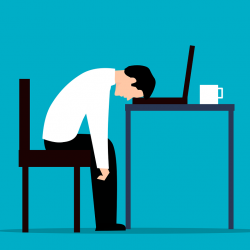To provide the best experiences, we use technologies like cookies to store and/or access device information. Consenting to these technologies will allow us to process data such as browsing behaviour or unique IDs on this site. Not consenting or withdrawing consent, may adversely affect certain features and functions.
The technical storage or access is strictly necessary for the legitimate purpose of enabling the use of a specific service explicitly requested by the subscriber or user, or for the sole purpose of carrying out the transmission of a communication over an electronic communications network.
The technical storage or access is necessary for the legitimate purpose of storing preferences that are not requested by the subscriber or user.
The technical storage or access that is used exclusively for statistical purposes.
The technical storage or access that is used exclusively for anonymous statistical purposes. Without a subpoena, voluntary compliance on the part of your Internet Service Provider, or additional records from a third party, information stored or retrieved for this purpose alone cannot usually be used to identify you.
The technical storage or access is required to create user profiles to send advertising, or to track the user on a website or across several websites for similar marketing purposes.
 Two in five employees across the UK have experienced problematic behaviour, such as bullying, harassment or discrimination at work; with 42 percent confirming toxic workplace culture has impacted their mental health, according to recent research from Culture Shift. (more…)
Two in five employees across the UK have experienced problematic behaviour, such as bullying, harassment or discrimination at work; with 42 percent confirming toxic workplace culture has impacted their mental health, according to recent research from Culture Shift. (more…)








 Managers in the increasingly digital, knowledge-fuelled and hybrid working environment may not be able to see the “invisible” strains on workers juggling home life and their workloads, a report by
Managers in the increasingly digital, knowledge-fuelled and hybrid working environment may not be able to see the “invisible” strains on workers juggling home life and their workloads, a report by 
 Over a third (37 percent) of Brits say they have felt more stressed since the lifting of lockdown restrictions in July, and one in five (21 percent) still aren’t ready to get back to normal life – and that includes the office – claims a new
Over a third (37 percent) of Brits say they have felt more stressed since the lifting of lockdown restrictions in July, and one in five (21 percent) still aren’t ready to get back to normal life – and that includes the office – claims a new 
 According to new research from
According to new research from 
 Businesses across all sectors are having to re-think their employee experience and wellbeing strategies to provide support to staff in the wake of the pandemic. According to new research from
Businesses across all sectors are having to re-think their employee experience and wellbeing strategies to provide support to staff in the wake of the pandemic. According to new research from 
 At this time of year, with events such as Happiness at Work Week and
At this time of year, with events such as Happiness at Work Week and 
 Women in the workplace are twice as likely as their male colleagues to ask for help with emotional wellbeing, according to the very latest figures provided by
Women in the workplace are twice as likely as their male colleagues to ask for help with emotional wellbeing, according to the very latest figures provided by 


 A total of 2.99 million recent job seekers over 50 (52 percent) believe their age has made employers less likely to hire them, according to a new report from
A total of 2.99 million recent job seekers over 50 (52 percent) believe their age has made employers less likely to hire them, according to a new report from 
 The debate about the workplace and the future of work gets more interesting by the week. In the last few days alone, I’ve listened in on three great speakers talking about the opportunities, challenges, nuances and complexities of it all in a way that has been all but impossible in the past 18 months. In addition, Nigel Oseland has published
The debate about the workplace and the future of work gets more interesting by the week. In the last few days alone, I’ve listened in on three great speakers talking about the opportunities, challenges, nuances and complexities of it all in a way that has been all but impossible in the past 18 months. In addition, Nigel Oseland has published 
 In its latest white paper report,
In its latest white paper report, 








October 22, 2021
Employee experience is more important than ever
by Lizzie Rolley • Comment, Wellbeing, Working culture, Workplace